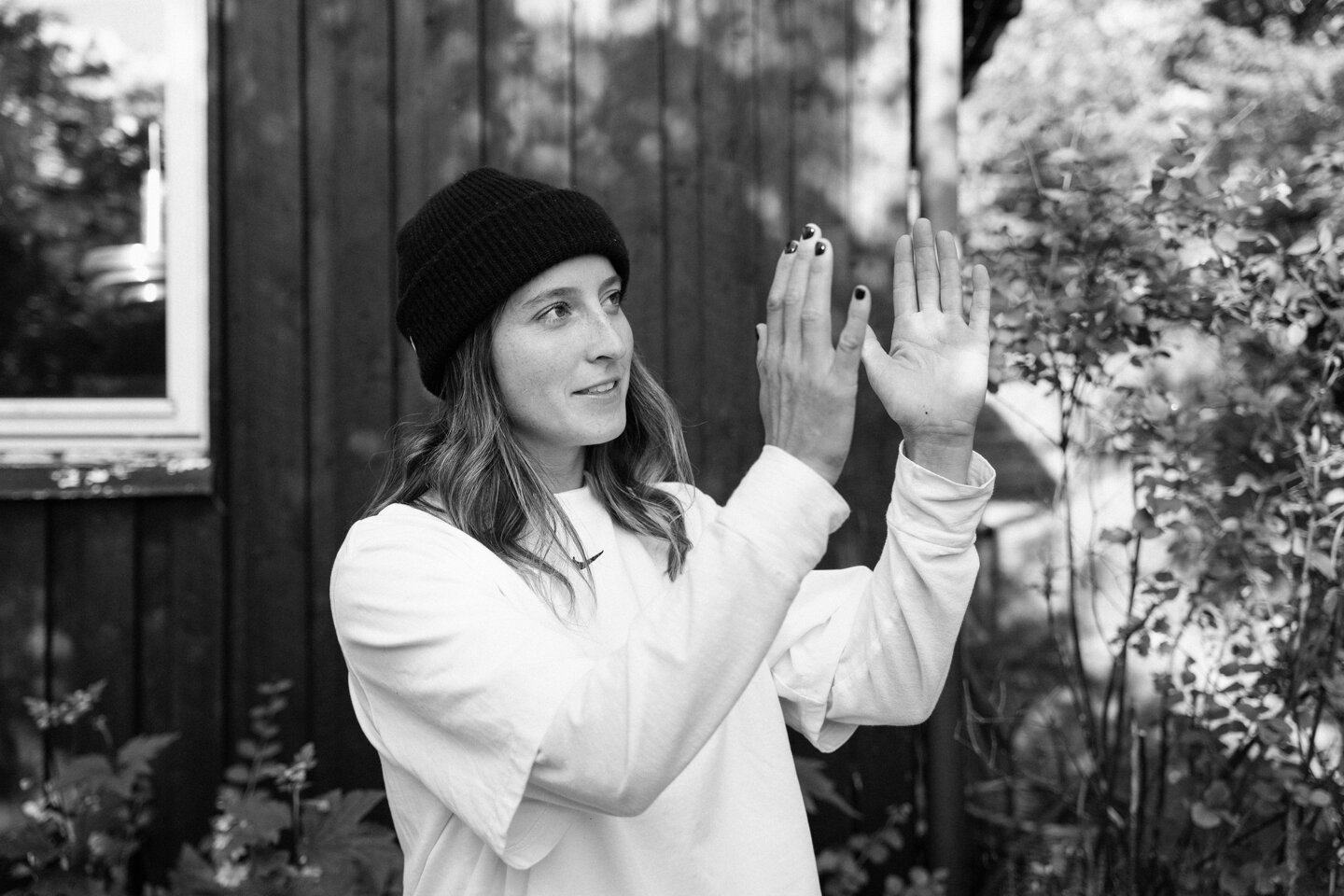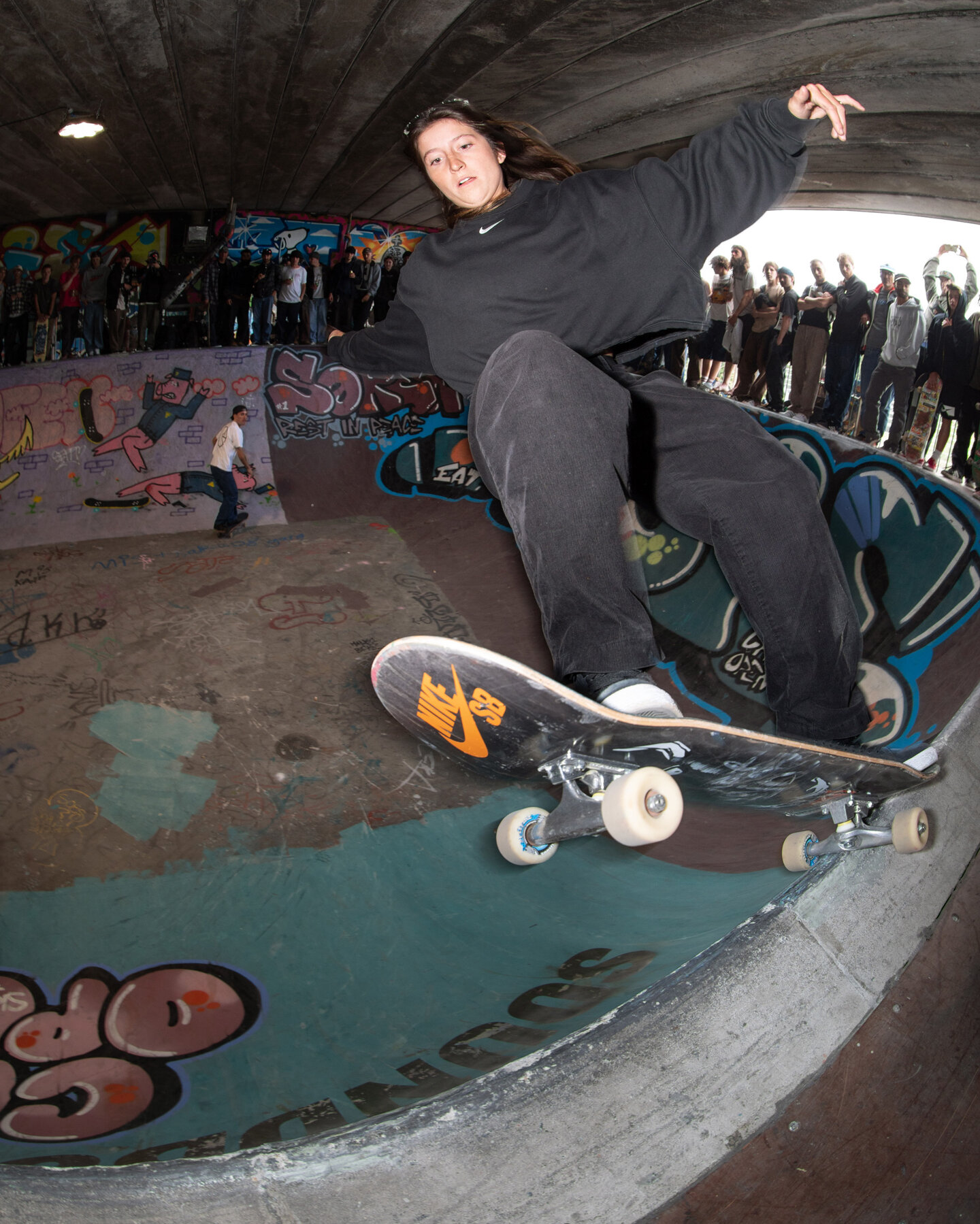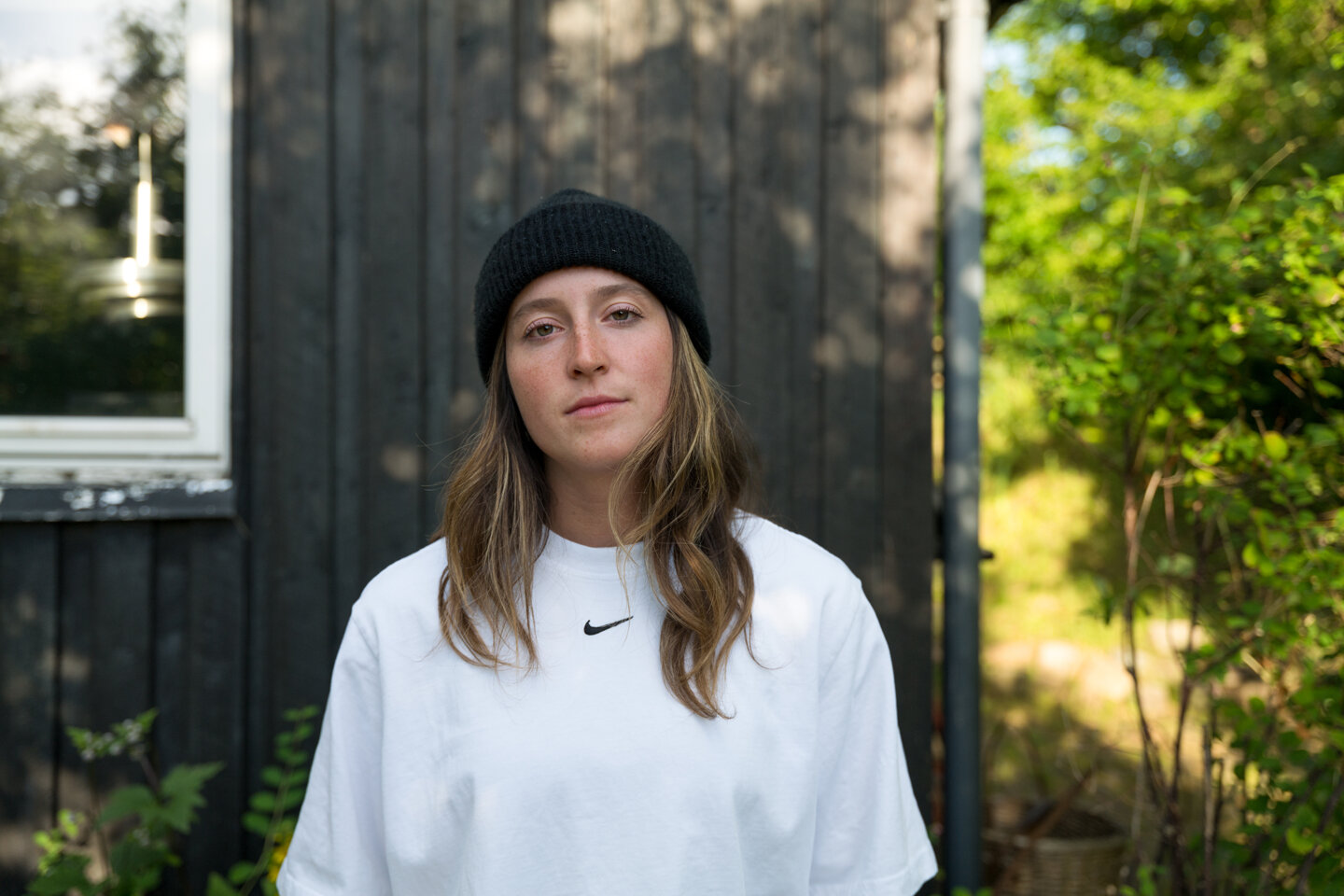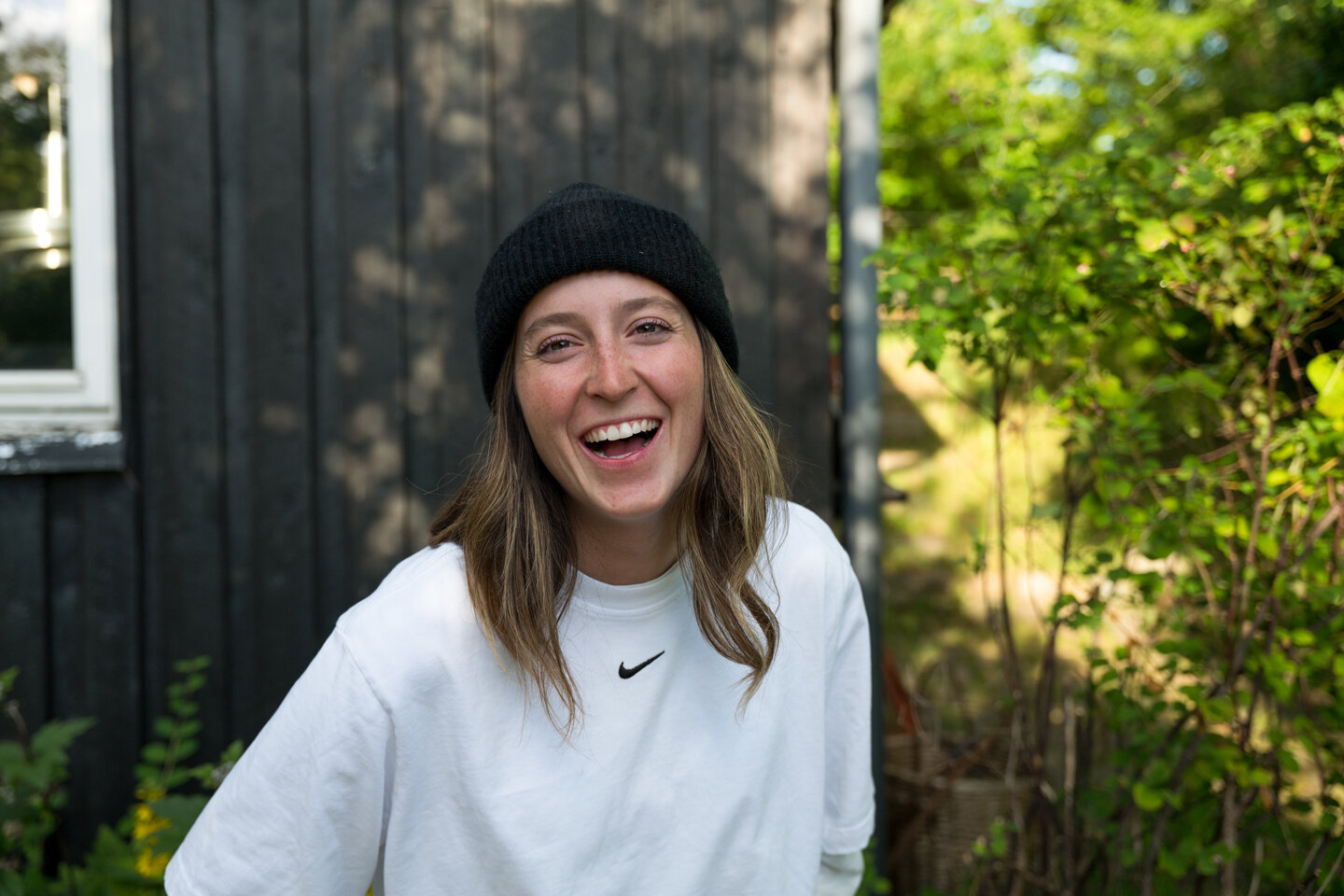
Nicole Hause
Hear from Nicole Hause as she chats with John Rattray about her experiences with mental health.
So, first, what's been your experience? What's Nicole's experience of this topic we call ‘Mental Health’?
Nicole Hause:
I’ve dealt with mental health. I didn't really realize it until I went through a bad break up and then I flipped into kind of a depression.
So, I started researching and kind of figuring out why you might be reacting to certain things. And why you might feel the way you do sometimes, and how to, you know, cope with those feelings, more than push them away with whatever you know, substance abuse, or whatever it might be.
Looking back, I even see it in my family. But it's not diagnosed the same way, you know, or back then I guess it was looked at like, not really something to fix. It's just something to name, ‘Oh, he's had depression’, or ‘he's an alcoholic’, but there's no system around what that means.
So, I feel like I can see the generations of it, and I feel good in where we're at that point where so many more people are doing therapy.
I've done therapy and learned about myself a lot more and about my family's past and how those translate into who I am today, and how you can kind of stop it in its tracks and start a new way to look at it. A way to deal with things that are hard to talk about.
My family is very open and honest, but it's also something that you don't mention. There’s depression, or there's alcoholism, it's, ‘Oh, yeah, it's that. But it's fine. Everything is fine.'
John Rattray:
I think that's interesting. When you're mentioning about how your family is open and honest with each other. But there's something about this subject that maybe wasn't talked about so openly. Can you talk a bit more about that?
Nicole:
Yeah, I think it's recognized, but it's not understood. It’s not talked about enough where people can understand it or can do something to change it.
No one really is comfortable enough to just have a chill discussion about it and make it seem like there's ways to fix it.
John:
What do you think it is that stops the rest of that conversation from happening? One thing I think is that when we don't understand something, and we don't know why something's happening, that's scary.
Nicole:
Yeah, I think there’s a fear of what else it brings up. Instead of dealing with it you just run away from it. Personally, I feel like there's a lot of just not really understanding things enough to deal with them.
John:
My gran would say it’s one of those things we ‘sweep under the rug’.
Nicole:
Yeah, it feels like a ‘sweep under the rug’ but like I said, they’re not scared to say what their problems are but then it’s hard to face the actuality of ‘why?’ Like you said, reflection on ‘why?'
John:
Because it can get uncomfortable at first. These are uncomfortable conversations to have. If there was addiction in the family, or whatever it may be. This is tough to talk about at first but after you get through it, you realize, ‘Oh, that was very valuable’, but you're scared of it at first.
Nicole:
Definitely. Even doing therapy is scary. It's not fun. Or at least it’s not all like ‘yaay’ but I learned so much in those moments. Of getting over the fear of saying something. Getting over the fear of realizing, ‘Oh, I might have low-grade depression and so, there's certain ways I have to care for myself and understand myself so it's not continually causing this pattern of making it worse, you know, by not understanding it.
I feel like it's so easy to make it worse by not understanding it. I think that's what people have done for generations, ‘We'll just drink and then the problem, the depression, goes away’. But it always catches up with you.

LET’S EXPLORE THE EXPERIENCES OF GETTING PROFESSIONAL HELP—THE PROCESS WE CALL ‘THERAPY'
John:
Definitely. We’re just kicking the can down the road at that point.
I think a couple of things that you've been touching on—your own experience of therapy, and this idea of escape—I've said a few times, ‘Hey, if I had a dollar for every time I heard somebody say, ‘skateboarding’s my escape’, then I'd have a good chunk of dollars. My point is that's great, skateboarding does help you for many reasons that we now understand.
Physiological reasons, it can help you calm down. Psychological reasons, it provides you access to a community of supportive friends. As supportive as we can be given the knowledge that we have of this subject. Like we said, it's a scary one we sometimes sweep under the rug. My point is, ‘Okay, it's your escape. The important follow up question is, ‘what are you escaping from?’ That's the work that we do in therapy.
I think we can all get to a basic level of understanding the 101 of therapy to be a bit better at having these conversations with each other when we need to. Does that resonate with you?
Nicole:
Definitely. In therapy, when I was doing it, they call it stuck points. It's what you're stuck on. What's holding you back? What you're scared of that's keeping you in this the cycle.
You're holding on to the fear because you're so scared of looking at it that you never do, and then it's just always there. So, you gotta not be stuck in your trauma and get out of the cycle.
John:
That's the first time I've heard stuck points. It really makes sense. There's stuff you're not facing up to, because it's painful. And when you work through it gives you a chance to kind of forgive yourself for some of the stuff that happened when we were younger that is affecting us now that wasn't our fault. Understanding that has been important for me.
Nicole:
Yeah, healing that inner child who went through something that they couldn’t predict or control.
It's just interesting to look back on yourself when you were a kid and realize that you’re only four or five, or whatever the case, and you don't have all the information you have now. So, there's a lot that you can reflect on from not having all the answers as a kid and now, being older and being able to care for that little kid. Maybe they didn't get it the care they needed at that time.
I feel it’s so important to look at the things you're most scared of but keep pushing through. That’s the only way but there's a light on the other side. You just have to get through the not-fun stuff to feel a little bit lighter.
John:
Yeah, I think that the more we can talk about it and remind each other that, hey, no matter how dark it gets there is a light at the end of this tunnel is important.
Is there anything else specific about your process of going through therapy that you’d want other girls, skaters, out there to understand about it?
Nicole:
I think one of the most important things is it’s not supposed to feel easy. In therapy you are facing your hardest time in your life, and really dissecting why you maybe are having issues in the present moment but you're looking at the past to dissect what you're feeling right now. It's challenging to stay with negative events that have happened but once you do, the other side of that is that you feel such a relief off your chest, you feel so much lighter. I can't even explain how valuable it is to just bear with it for that hour and really try your best to get through those thoughts and those stuck points that can feel unbearable at the time. I promise once it's over, it feels so good. And the more therapy you do, and the more time you spend with it, the more it compounds, you understand it, and it becomes easier.
It's a skill you learn like skateboarding.
I've been doing therapy for almost three years now. That time you put in, like the time you do on a skateboard, is so crucial. Showing up for yourself and knowing that therapy is not a burden. It's something you're doing for yourself, but also is gonna help you in the future. It's very much a self-care act.
John:
There's something in what you're saying there that's making me think, hey, looking after yourself will help you be better at looking after others.
So, this is super interesting to hear you talk about the therapeutic process.
YOU'VE DONE PROFESSIONAL WORK WITH A THERAPIST. BUT OUTSIDE OF THAT PROFESSIONAL SETTING THERE'S ONGOING WORK THAT NEEDS TO BE DONE WITH THE SKILLS YOU DEVELOP. I'D LOVE TO HEAR A BIT MORE ABOUT THAT.
Nicole:
Yeah, so I've always read naturally, since I was a kid. I never really read fantasy books or anything. I always read self-help books—which, looking back, I was probably looking for answers that I needed—so, I continue to read.
One of the books that really helped me is called “The Untethered Soul” (by Michael Singer). That one really helped me understand a lot about being present in the moment.
Really listening to yourself at the end of the day. That's a big thing that you can learn from books is how to just be easier on yourself and not take everything as big as it might feel. You're gonna always have something going on. Things are always going to be coming up. But you really gotta just take each day as it is and really listen to your needs.
So, there’s books I read, and those books teach the things you have to put in, in real life.
Listening to yourself, listening to your needs and what might be helpful on that day in that situation, and come at it from an angle where you love yourself, and you're caring for yourself.
I think a lot of times you can get wrapped up in a shame of, ‘I did this, and now I'm bad’ then it comes into this spiral of ‘I'm a bad person. I don't deserve to be here. I don't deserve to have any of this thing that I have’. It can really snowball.
Having friends that have been around you when you've been going through things that you can talk with [can help prevent things snowballing]. Just keeping yourself in check a little bit.
Once you realize you're in a lot of control of the thoughts you give yourself then once something bad is happening you finally have the skills to turn it around.
When bad thoughts are happening. You have to be in charge of turning those around.
At first you might not know how to do that, but then, eventually, after studying, you get the concept of ‘Oh, I'm about to spiral I need to—whatever it is—put a hand on my heart, or, just chill out for five minutes or hold an ice cube.'
There's a lot of skills you can learn. I think a big part is venturing out and wanting to learn. And then put what you've learned into real life, which is usually the hardest part.

THE IDEA THAT MENTAL HEALTH AND PHYSICAL HEALTH ARE NOT SEPARATE, OUR BRAINS AND BODIES ARE ONE INTERTWINED CONNECTED SYSTEM HERE.
John:
There are a few things that you said there that are super interesting.
One, we ultimately are in control of the thoughts that we have, that we act on at least.
My learning is that thoughts are not always intentional. They'll come up in our brains, but we ultimately, at the end of the day, are able to say, ‘Is this thought a good one? What about this one? Nope, let that one go.'
There's this skill we've heard of called mindfulness. That's basically learning to notice that process happening. It's a bit hard at first, but it doesn't take that long to start to be able to do it, and, to your point, just stop for five minutes and check yourself.
It seems so simple on the surface, but it's so important to learn to do that, because, like you said, otherwise, things can snowball. And then, once you get frantic, then you lose the ability to properly figure out what you should act on, what you shouldn't act on.
You also mentioned physical things like, hold an ice cube. Put your hand on your heart. Sit and breathe. Physical things.
And what I've been really interested in is this idea that we used to think mental health and physical health are these two separate things. And now it's like, wait, no, mental health is your brain and your nervous system. It's all these physical things. And there's a lot of understanding about how it works.
Mental health and physical health are completely intertwined. You can't have one with the other.
So, my question is, how does skateboarding or anything else physical play a role.
I play the guitar to help myself sometimes. That physical focus you get from playing the guitar really helps me get in the zone and calm down. What sort of stuff has been useful and helpful for you?
Nicole:
Yeah, skateboard and skateboarding, obviously for sure.
Hiking. For me it's nature that brings me back down. When you're taking a walk in the woods you have to be really present to what's around you. It brings you back into reality of nature and nurture of life. It's not so serious out there. It's very simple. The animals and everything. So, I've always liked hikes and taking walks. I always felt it's really helpful. A walk with a friend. Something simple where you don't have to think too much.
Skateboarding works for me in that way for sure where you're escaping something, but sometimes it really can come back and bite me. If I slam or there's times when you're already not feeling good and then you can get on your board, and it still doesn't work which you can make you double as angry.
Shooting basketball, shooting hoops. Something that's not so high risk.
In a weird way, maybe I've used skateboarding to kind of cause a little bit of pain. Maybe that's a thing in skateboarding a little bit. I don't know, I've reflected on myself, and I’ve thought, ‘Oh, whoa! I don't think I’m using skateboarding as a healthy outlet all the time.'
John:
I've thought about this one a lot, too. That is interesting that you point that out too.
Okay, are there any closing things to say to skaters out there about this subject from Nicole's point of view specifically?
Nicole:
It's just a hard subject to talk about. It's hard for me to just talk about that, but I think the more that we do talk about it, and the more we see that it's not just, ‘I have a story’, everybody has a story. That's where it becomes less of a mystery and more of, ‘Oh, let's just start. Let's just keep talking about it.'
Keep talking about it with your friends and be there be there in support of everyone.
Thanks for having me do this. It was good. It was good for me. I feel like I even got a little more comfortable with talking about it. So that's good.
John:
That's the whole idea. Let's just jump in the cold water and see how it feels. And then realize, ‘Oh, actually, it feels quite good.'
Nicole:
Exactly. Cold water. Definitely refreshing.
